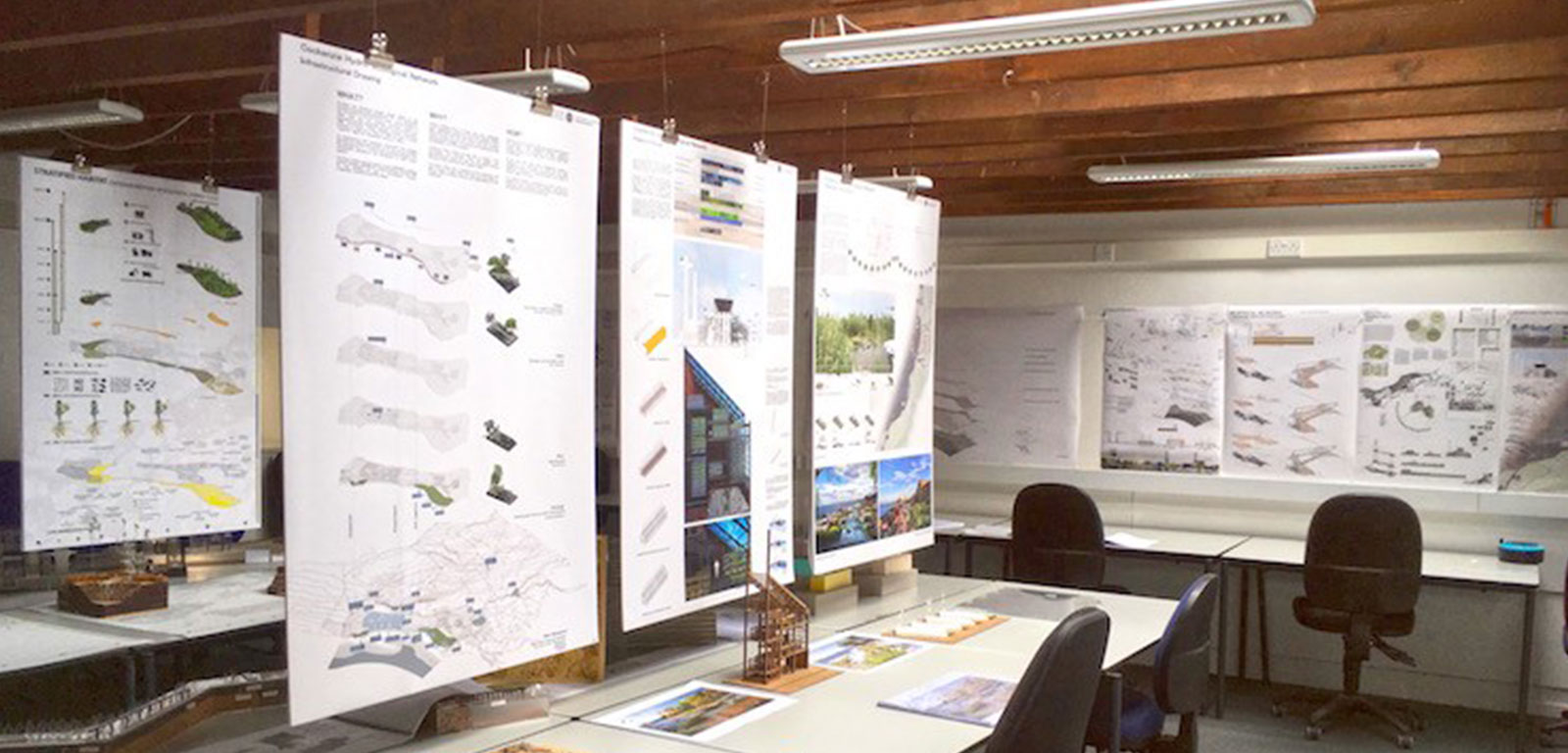

Normally a UK 2:1 honours degree, or its international equivalent, in a relevant subject.
Because of the design element in this degree we look for evidence of engagement with sustainable issues and design.
We ask you to put together a collection of visual support material of work you have done at University, professionally, or following your own interests. It can include drawings, photographs, journals and notebooks. This should take the form of a PDF portfolio of work and be no more that 10 pages. You should limit your file size to 25Mb. We accept filesharing links.
If you do not meet the academic entry requirements, we may still consider your application on the basis of your portfolio and/or relevant professional experience.
For 2020 entry we accept the following English language qualifications at the grades specified*:
IELTS: total 6.5 (at least 6.0 in each module)
TOEFL-iBT (including Special Home Edition): total 92 (at least 20 in each module). We do not accept TOEFL MyBest Score to meet our English language requirements.
PTE Academic: total 61 (at least 56 in each of the "Communicative Skills" sections)
CAE and CPE: total 176 (at least 169 in each module)
Trinity ISE: ISE II with distinctions in all four components
We also accept a degree that has been taught and assessed in English from a university on our list of approved universities in non-majority English speaking countries.
If you are not a national of a majority English speaking country, then your degree must be no more than three and a half years old at the beginning of your programme of study.
*(Revised 21 February 2020 to remove PTE Academic from 2021 entry requirements. Revised 21 April 2020 to include TOEFL-iBT Special Home Edition in 2020 and 2021 entry requirements.)
Your English language qualification must be no more than three and a half years old from the start date of the programme you are applying to study, unless you are using IELTS, TOEFL, PTE Academic or Trinity ISE, in which case it must be no more than two years old.
Advanced Sustainable Design gives you the knowledge and skills to put theory into practice in the sustainable development of our cities, towns and countryside. We work from the scale of building systems to entire regions.
We welcome applications from graduates of all disciplines. Our field is architecture, design and planning but we welcome graduates in environmental sciences and the humanities.
Our programme is delivered in a series of practical projects supplemented with workshops and seminars on all aspects of sustainable design. You have an opportunity work in building simulation modelling and gain desirable skills for the workplace.
We believe that successful sustainable development is not achieved only through technical solutions. We explore the complex relationship of design to contemporary sustainable agendas. You will engage in cultural and professional debates about the built environment and gain a distinctive and expert voice in this field.
You complete your studies in one year.
The first semester is a combination of seminars and workshops on the theoretical underpinnings of sustainable design. Alongside this you work on design projects at the scales of both settlements and building systems. We set many of our projects on a global stage working in a range of climates and contexts.
The second semester offers an immersive design project that allows you to make your own projects and test them in real contexts. You conclude your studies with a comprehensive dissertation research project that can advance your own interests and can be shaped to your preferred career path.

There is a demand for graduates with expertise in sustainable development and the built environment. In this masters, you’ll gain tangible skills and a portfolio of work to embrace these opportunities. Many of our students use their acquired expertise to set up their own practices and consultancies with a focus on sustainable design.
Our graduates use this degree to progress within their own field, with a distinctive specialism in the job market. Our students sometimes use this masters to change their career path, often finding employment in the large multi-disciplinary consultancies that work on infrastructure and development projects.
Our degree also acts as a stepping stone to doctoral study both in Edinburgh and on a global stage to help meet demand for expert knowledge in this area.
